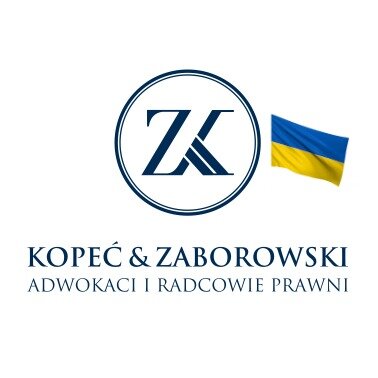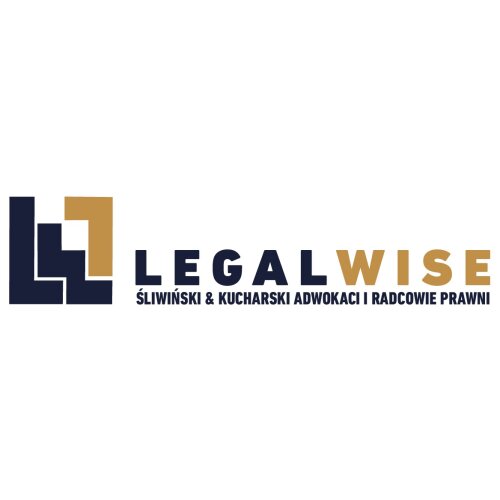Best Equity Capital Markets Lawyers in Warsaw
Share your needs with us, get contacted by law firms.
Free. Takes 2 min.
List of the best lawyers in Warsaw, Poland
About Equity Capital Markets Law in Warsaw, Poland
Equity Capital Markets (ECM) law in Warsaw, Poland guides the ways companies can raise funds through the issuance and trading of shares on publicly regulated markets, such as the Warsaw Stock Exchange (WSE). Poland's capital markets have grown rapidly in the last decade, serving as a gateway for both domestic and international companies and investors. Legal frameworks govern initial public offerings (IPOs), secondary offerings, regulatory compliance, corporate governance, and ongoing disclosure obligations. Navigating ECM activities requires not only commercial insight but also solid knowledge of local, European Union, and international regulations.
Why You May Need a Lawyer
Engaging a lawyer specializing in Equity Capital Markets is crucial for several reasons. Whether you are a company seeking to go public, a shareholder considering significant trades, an investor aiming to participate in a public offering, or a business dealing with compliance and reporting obligations, legal advice is nearly always essential. Lawyers help:
- Structure IPOs and other equity offerings
- Draft and review prospectuses and other regulatory filings
- Ensure compliance with Polish Financial Supervision Authority (KNF) and WSE requirements
- Navigate complex cross-border regulations if foreign investors or markets are involved
- Address disputes, regulatory investigations, or sanctions
- Negotiate and draft agreements related to underwriting, lock-up, or shareholder relations
- Manage risks associated with market manipulation and insider trading cases
Local Laws Overview
Poland's ECM legal landscape is shaped by both domestic and European regulations, ensuring security and transparency for investors and issuers. Some key laws and regulations include:
- Polish Act on Public Offering, Conditions Governing the Introduction of Financial Instruments to Organised Trading, and Public Companies stipulates the rules for public offerings and listing of securities
- Regulations of the Warsaw Stock Exchange define listing requirements, reporting, and disclosure obligations
- The Polish Act on Trading in Financial Instruments covers the operation of investment firms, trading venues, and market participants
- Market Abuse Regulation (MAR) and Prospectus Regulation, as part of European Union law, apply directly in Poland
- Supervision and enforcement are primarily handled by the Polish Financial Supervision Authority (KNF)
- Anti-money laundering and data protection rules also impact ECM processes
It is important for anyone engaged with ECM activity to be aware of the multilayered nature of compliance, as violations can result in severe penalties, including fines and de-listing.
Frequently Asked Questions
What is an initial public offering (IPO) in Poland?
An IPO is the process through which a private company offers its shares to the public for the first time on a regulated market such as the Warsaw Stock Exchange.
Do foreign investors face extra restrictions in Polish ECM?
Generally, foreign investors can freely participate, but they must comply with Polish regulations and, in certain sectors, additional restrictions or approvals may apply.
What are the main regulatory bodies overseeing ECM in Poland?
The primary authority is the Polish Financial Supervision Authority (KNF) in conjunction with the Warsaw Stock Exchange (WSE).
Are prospectuses always required for public offerings?
In most cases, yes, unless specific exemptions apply such as private placements or small offerings falling below established thresholds.
What are continuing obligations for publicly listed companies?
These include regular financial disclosures, responding to material events, corporate governance adherence, and market abuse prevention.
How long does an IPO process take in Poland?
The process usually takes several months, including preparation, regulatory approvals, drafting documentation, and roadshows to attract investors.
Can a company be de-listed from the Warsaw Stock Exchange?
Yes, for failure to comply with WSE regulations, insolvency, mergers, or voluntary de-listing under specific procedures.
What are the penalties for market abuse or insider trading?
Penalties can include heavy fines, reputational damage, criminal prosecution, and restriction from market participation.
Is it possible to dual-list shares on different exchanges?
Yes, many companies pursue dual listings but must meet the regulatory demands of each exchange and governing authority.
What is the role of a legal advisor during a public offering?
Legal advisors guide on structuring, compliance, prospectus preparation, negotiations, disclosures, and represent the company's interests before authorities.
Additional Resources
- Polish Financial Supervision Authority (KNF) - Main regulatory body overseeing capital markets
- Warsaw Stock Exchange (WSE) - Information for issuers, investors, and market participants
- Polish Ministry of Finance - Guidance on financial and securities regulations
- Association of Stock Exchange Issuers (SEG) - Resources for listed companies
- Local legal and business chambers - Support for international investors operating in Poland
- European Securities and Markets Authority (ESMA) - Oversight of cross-border EU-wide market activities
Next Steps
If you need legal assistance in Equity Capital Markets in Warsaw, Poland, consider the following steps. Begin by defining your objectives, such as going public, investing, or ensuring compliance. Gather all relevant documents and records. Search for legal professionals or law firms with expertise in ECM and a solid track record in Warsaw. Prepare a list of your questions and concerns ahead of your consultation. Do not hesitate to ask your lawyer about experience, costs, and their approach to handling cases similar to yours. Finally, maintain open communication and be proactive in providing all information your legal advisors request. Timely legal guidance can save your interests, avoid costly pitfalls, and ensure full compliance with all current regulations.
Lawzana helps you find the best lawyers and law firms in Warsaw through a curated and pre-screened list of qualified legal professionals. Our platform offers rankings and detailed profiles of attorneys and law firms, allowing you to compare based on practice areas, including Equity Capital Markets, experience, and client feedback.
Each profile includes a description of the firm's areas of practice, client reviews, team members and partners, year of establishment, spoken languages, office locations, contact information, social media presence, and any published articles or resources. Most firms on our platform speak English and are experienced in both local and international legal matters.
Get a quote from top-rated law firms in Warsaw, Poland — quickly, securely, and without unnecessary hassle.
Disclaimer:
The information provided on this page is for general informational purposes only and does not constitute legal advice. While we strive to ensure the accuracy and relevance of the content, legal information may change over time, and interpretations of the law can vary. You should always consult with a qualified legal professional for advice specific to your situation.
We disclaim all liability for actions taken or not taken based on the content of this page. If you believe any information is incorrect or outdated, please contact us, and we will review and update it where appropriate.
















